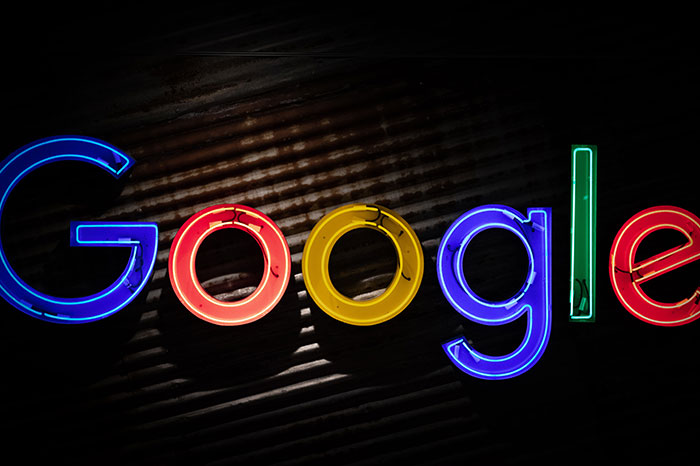Digital paid media has changed the nature in which businesses and marketers communicate with their audience and this has largely been thanks to third party cookies. They have become an integral feature in the way companies use customer data to help drive communication strategies. However, despite cementing themselves in the digital marketing process, come 2023 they will be forcibly retired, leaving many businesses with a black hole in their operations.
What are third party cookies?
To best understand why the deprecation of third party cookies is occurring, first you need to understand what they do – or more aptly, what they did for your business. Third party cookies serve as a means in which websites collect and store information on their visitors. The data is held on a domain external to the one a visitor interacted with and will later be accessed by the hosting domain which is often a media platform – commonly a walled garden (typically Google and Facebook). Their purpose is tracking users between websites to help display more relevant ads and content (cross site tracking) - with marketing teams and advertisers benefitting from this information in using it to understand their audience to assist with direct communication. They also serve a purpose in retargeting ads to visitors based on search activity and site engagement, as well as deciding which ads appear on a website, as well as when and where to present these placements.
Why are they being removed?
Despite having an important role to play in the paid and programmatic media space, regulators have deemed the consumer privacy issues entailed with third party cookies to outweigh their significance in data collection for digital marketing. Historically, most customers weren’t even aware that they were being tracked when visiting a website or that their details were being collected and commercialised (leading to unwarranted calls or emails). Now, despite current regulations forcing websites to inform visitors that their websites utilise cookies, the issue of unwanted tracking hasn’t dissipated - especially since most customers don’t completely understand what cookies are or how they function.
How does this impact digital marketing?
The vast majority of advertisers in the digital space rely on third party cookies to obtain data and reach customers. By 2023 years of third party infrastructure will be made redundant across all reliant businesses, creating a void in data collection, measurement, and management capabilities. Presently some browsers have already opted to block third party cookies to appease consumer privacy concerns, drastically limiting and restricting advertisements potential, giving a small insight as to what the new world of online data will look like, while forcing advertisers to look for alternatives now.
For those businesses who were never heavily reliant on third party cookies you’re probably thinking ‘who cares, this doesn’t really affect me?’ and you are right in terms of not losing years of investment into third party infrastructure.
However, this mindset may leave you lagging behind in the hyper competitive digital marketplace. This is due to the fact that those who have been over reliant on third party systems will be forced into alternative solutions, which though may be costly, will ultimately help them take advantage of the new world of digital advertising. In saying that, given that the cost of third party cookie deprecation will be substantially lower to those who have been less reliant on third party systems, it places them in the best position to gain a competitive advantage by investing in new data solutions now, setting them ahead of those most affected by these changes.
Irrespective of your current relationship with third party cookies, it isn’t all doom and gloom, there is a solution. Like a phoenix, first party data will rise from the ashes of third party cookies, spearheading the new age of customer data collection and management.
What is the first party data solution?
First party data exists solely on the domain in which they belong. This allows site owners to directly collect insights, analytics and other customer interactions (via a first party cookie), giving a greater extent of control to businesses than previously experienced in the third party data world, while keeping in line with the privacy concerns that enacted the change in the first place. This form of cookie is supported across all browsers and websites, a feature that currently exists and will continue to exist after the expulsion of third party cookies.
How can you operate post the third party ‘Cookie Apocalypse’?
With everyone scrambling for a solution to cover their costs and minimise the damage inflicted by regulatory changes, it is important that you are careful where you place your trust. With the right people and expertise, the transition to first party data systems can be seamless.
The Crystal Box solution moves you into the future of data, today. We don’t wait for the extinction of third party cookies to set you up. By making the change now not only will you be prepared for the deprecation of third party cookies in 2023, but you will start the process of building your new first party data asset now, in a stress-free environment, ensuring that once the deprecation occurs your infrastructure and data asset is already established in the market, giving you a competitive advantage over those who haven’t made the change – regardless of how the third party cookie apocalypse affects them.
With all these regulatory changes comes an opportunity for innovation. Using first party data not only allows you to collect more insights with far greater accuracy but coupled with the Crystal Box proprietary AI this data can be enriched extensively. Our AI technology collates the mess of raw data transforming it into customer attributes and demographics, filtering them back into your system saving both time and money for marketing teams, while bolstering the value of your initial data points.
By collecting larger quantities of high value data, an impetus is placed on marketing teams and advertisers to make the best use of these first party enriched insights. The Crystal Box solution also has this covered. Our experience in establishing some of Australia’s foremost data and marketing businesses has taught us the significance of how effective an addressable marketing strategy is when it comes to turning first party insights into conversions. Through coordinated cross channel promotions or dynamic creative (just to name a few) comes the ability to make a more personalised connection with your audience, increasing returns on investment and overall profitability.
John Nicolaou
Specialising in digital marketing, John has leveraged years of experience at a domestic and international level to help simplify the complex nature of the digital space, assisting people of all disciplines in managing all things digital, data, and more.
You may also be interested in
auto_stories Data, Solutions
Top 5 reasons to move to first party data
There are many reasons as to how moving into first party data collection, management and measurement systems can improve your digital marketing and operational capabilities. Here are our top five! Read More
auto_stories Media
Taking Back Control of Your Data from the Ad Tech Supply Chain
After the ACCC released their Digital Advertising Services Inquiry report yesterday and found ‘Google’s dominance in ad tech supply chain harms businesses and consumers,’ it has many Australian brands questioning ‘what next?’ Read More
question_mark Why
When it comes to first party solutions, how does Crystal Box compare?
With the imminent demise of third party cookies many companies will be faced with dramatic changes to their data asset and marketing operations. The first thing to make clear in transitioning into the new age of data is: ‘the sooner the better’. Read More



